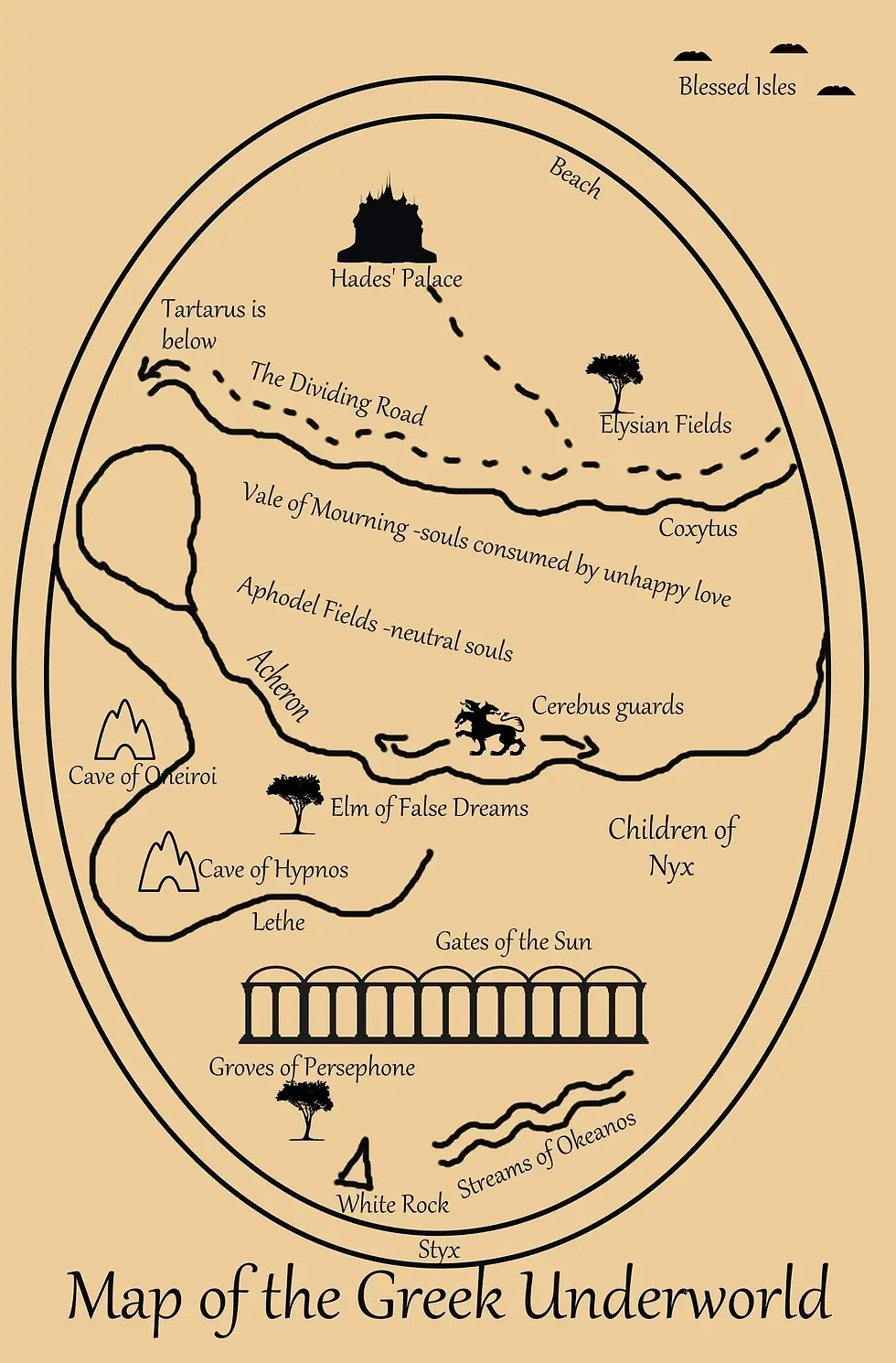Janus, the God of Doors (and practically everything else)
- Sophie Yang
- Jul 28, 2025
- 3 min read
The Romans worshipped a god for practically everything. Jupiter ruled the skies, Neptune ruled the waters, Pluto ruled the underground. They prayed to Minerva for wisdom, Mars for victory in war, Venus for love, Bacchus for parties and fertility—all fairly standard things to worship someone for. Occasionally, though, you’d come across a god whose purpose seems so random it makes you want to say, “What even is the point of worshipping you?” Because of that, I want to talk about one of Rome’s most influential gods: Janus, the god of doorframes and liminal spaces.
Unlike the well-known Twelve Olympians, who all held Greek origins, Janus is very distinctly Roman-exclusive. As the god of doorframes, Janus also held authority over the metaphorical ‘doors’ transitioning between life & death, beginning & end, youth & adulthood, city & countryside, war & peace, and barbarism & civilization. He oversaw birth, death, weddings, new years, periodic shifts from one historical era to another, and even seasonal shifts, hence leading him to also be worshipped as a god of fertility and harvest (he does it all!). Fittingly, he was also thought to have two heads. Just as a doorway faces in and out, so do his faces.

Despite having such an important role in public worship, the actual information we have left of Janus is extremely fragmented, perhaps because his role carried such an expansive and abstract function.
In some Roman myths, Janus was almost akin to a primordial god such as Caelus (Uranus) and Gaia, the deified embodiments of heaven and earth. Janus existed since the very beginning of the world as the guardian of the gates which held access to heaven and the realm of the gods, dating way back to when Romulus (the first king of Rome, before it became a republic) founded the city. Thus, Janus was always invoked first in ancient Roman rituals and given precedence before any other god, even Jupiter. That’s also why, in the Julian calendar (our current version of the calendar), the first month is January, named after Janus, in honor of the transition from one year to another. Other Roman myths believe that Janus was an Etruscan god of agriculture who had sailed to the Roman shores. He was often depicted as an assistant to Saturnus (Chronos), who was thought to have created the Golden Age of Rome. Some believe that he had a son with a nymph, who would then go on to become Tiberinus, god of the Tiber river. Regardless, he was a household name in every Roman home.
Because Janus symbolized doorways and entrances, he also naturally became associated with all ceremonial gateways. These gateways were known as the Jani, and they were believed to assign good or bad luck to those who enter and exit them. These physical transitions held tons of symbolic weight. The Jani assigned a departing army victory or defeat from the moment they stepped foot outside of the city. The prosperity of trade between two states was determined by how well the Jani received their traveling delegates. In Roman tradition, the Jani were always to be kept closed during times of peace and open during times of war, except in the cases of Emperor Augustus and Nero, who forcibly closed them to send a propagandist message.
For such an immensely important public god, modern readers rarely know of him at all, which can only be attributed to the fact that neither we nor the ancient authors knew enough about him to entwine him into the epics and plays which focused on the Olympians or Muses. Not even Janus’s cult fully understood the god they worshipped. Modern archeologists also have not yet been able to discover the remains of Janus’s main temple, the Janus Geminus, which supposedly laid on the Janiculum Hill, the colloquially-titled ‘eighth hill of Rome.’ It didn’t help that the Janiculum Temple was converted into a Christian Church, and by the time Janus’s doors opened again in the 6th century AD, the god’s glory had already faded to the point of no return.




Comments